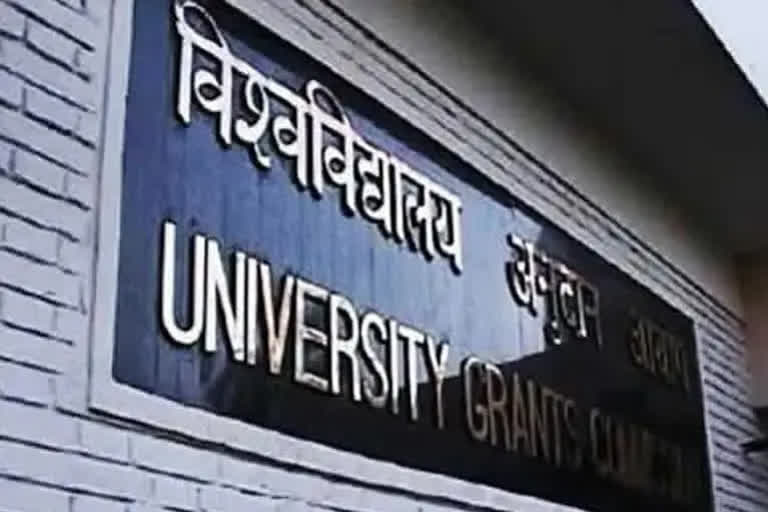New Delhi: UGC chairman M Jagadesh Kumar on Monday said the central universities will have to use Common University Entrance Test (CUET) scores to admit students to undergraduate programmes this year. He said the CUET, in all likelihood, will be conducted in the first week of July. This means that apart from the eligibility criterion of different universities, Class 12 board examination marks will not have any bearing on the admission of the students.
"From the 2022-23 academic year, the National Testing Agency will be conducting the CUET for undergraduate and postgraduate programmes. All the central universities will have to consider CUET scores for admissions to their programmes," Kumar said at a press briefing. There are 45 central universities funded by the University Grants Commission (UGC). The syllabus of the CUET will be mirrored with the Class 12 model syllabus of the NCERT, Kumar said.
The CUET will have Section 1A, Section 1B, general test and domain-specific subjects. Section 1A, which will be compulsory, will be in 13 languages and candidates can choose the language of their choice. The options are English, Hindi, Assamese, Bengali, Gujarati, Kannada, Malayalam, Marathi, Odia, Punjabi, Tamil, Telugu and Urdu. Section 1B is optional and for students who want to opt for another language apart from the ones that are a part of Section 1A. Some of the languages on offer are French, Arabic, German, etc, he added. Under the domain-specific subjects, a candidate can choose up to a maximum of six domains that they wish to pursue at the undergraduate level, Kumar said.
There are some universities that have general test as eligibility criteria for admission to even domain-specific courses so that is a part of the CUET, he said. The UGC chairman said the reservation policy of the universities will not be impacted due to the CUET. "The universities can enroll candidates for the general seats as well as for the reserved seats on the basis of CUET scores. It will not impact the existing admission and reservation policy that are in accordance with the Ordinances of the varsity," he said.
Also read:Controversial JNU VC Jagadesh Kumar appointed UGC chairman
Explaining further, he said if a university has a certain percentage of seats reserved for local students, it will be able to retain that. "But the thing is that these students will also have to take admission through CUET, he added. Central universities like Jamia Millia Islamia and Aligarh Muslim University (AMU) reserve half of their seats for the minority students. Both the universities are yet to take a call on CUET.
According to an AMU official, they will take a call on the CUET once they receive any communication from the UGC. Kumar also said foreign students will continue to be admitted as per the existing practice the universities have on supernumerary basis. The universities will be allowed to conduct practical and interviews for courses like music, fine arts, theatre, along with CUET. "The institutes can accord certain weightage to practical for such courses," he said. He also said there would not be any centralised counselling after CUET this year. The universities will have their own counselling.
The CUET will be held in two shifts. In the first shift, candidates will be able to write one language, two domain-specific papers and the general test. In the second shift, candidates can write the remaining four domain-specific subjects and section 1B, Kumar said. Talking about the benefits of CUET, he said it will provide equal opportunities to students from across boards, especially to those from the northeast and rural areas. The CUET is also expected to reduce financial burden on parents and students, as candidates will only have to write one exam.
The state universities, private universities and deemed to be universities can also use CUET scores for undergraduate and postgraduate admissions if they want, Kumar said. Delhi University and some other universities have already announced that they will only admit students to undergraduate courses on the basis of CUET. About postgraduate programmes, Kumar said, there are many universities that have adopted the CUET while there are some that conduct their own exams. The universities will have flexibility to opt for CUET as of now. "We hope that all the universities adopt the CUET for postgraduate programmes," he said. The NTA will soon release the detailed guidelines regarding CUET and the UGC will issue a public notice on Tuesday, Kumar said.
PTI
